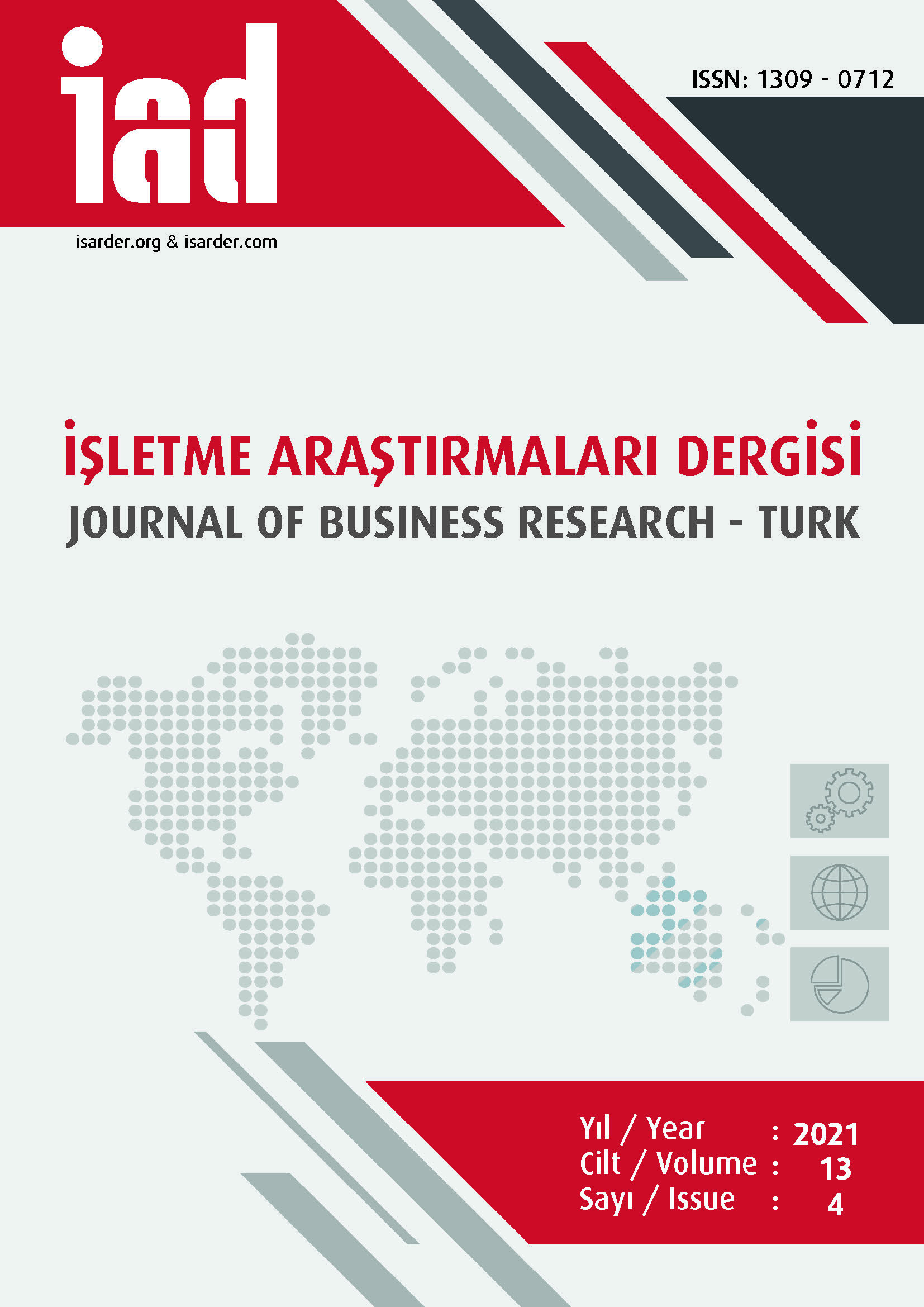(The Role of Knowledge Sharing in the Effect of Leadership Styles On Employee's Organizational Citizenship Attitudes: A Case of Academics)
DOI:
https://doi.org/10.20491/isarder.2021.1347Keywords:
Knowledge Sharing, Organizational Citizenship, Leadership StyleAbstract
Purpose – The purpose of this research is to determine the mediating role of knowledge sharing in the effect of leadership styles on organizational citizenship of employees with the help of structural equation model for 755 academicians who teach at foundation and state universities in Istanbul. Design/methodology/approach – In this study, organizational citizenship as a dependent variable, leadership styles as an independent variable, and knowledge sharing as a mediating variable are discussed. The research is a relational screening model. The population is academics working at foundation and state universities in Istanbul, and the sample is 755 academics who voluntarily participated in the research. The scales used are organizational citizenship behavior, leadership styles, and knowledge sharing scales, in a five-point likert structure, for which Turkish validity and reliability studies were conducted. In the first stage, factors were successfully reduced as a result of Explanatory Factor Analysis (EFA). The other stage, by using Confirmatory Factor Analysis (CFA) for construct validity, the Structural Equation Model (SEM) was estimated in order to determine the relationships for the model determined in the last stage by showing goodness of fit results. Findings – As a result of SEM, leadership styles were found to have an increasing effect on knowledge sharing and knowledge sharing was found to be significantly effective on organizational citizenship. Bootstrap analysis was used to examine the significance of the mediation role of knowledge sharing between leadership style and organizational citizenship behavior. Bootstrap standardized value ranges were found to be non-zero and significant. This showed that knowledge sharing has a mediating role in the relationship between leadership style and organizational citizenship behavior. Discussion – Leaders have a serious impact on directing the behavior and attitudes of their employees. Leaders have an important role in the development of organizational citizenship behaviors in this cycle, thanks to the creation of an organizational culture that can realize the flow and sharing of information belonging to employees and the integration of said information with organizational decision-making processes. n this study, leadership styles positively affect organizational citizenship and knowledge sharing, and knowledge sharing has a mediating role. There are a limited number of studies in the literature investigating the mediation effect on these variables. The study can be extended for different sectors and different samples.
Downloads
Published
How to Cite
Issue
Section
License

This work is licensed under a Creative Commons Attribution-NoDerivatives 4.0 International License.





